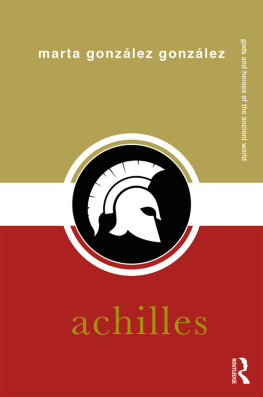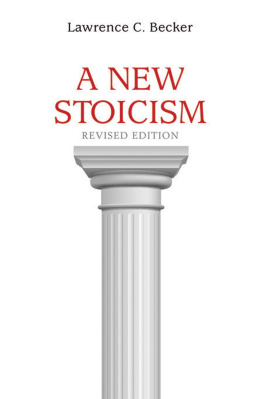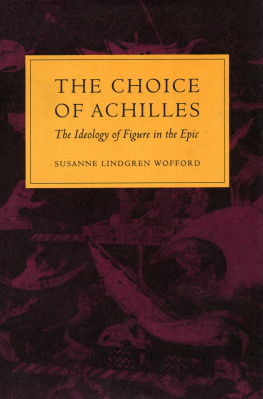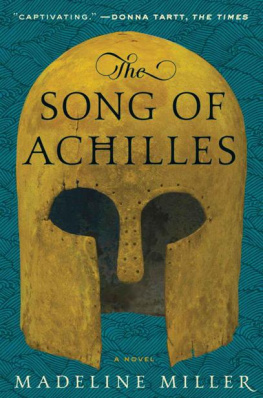Chapter I
The Greeks March against Troy Agamemnon Quarrels with Achilles
Troy was a small portion of that section of Asia Minor which was later called Phrygia. Its northern coast touched the entrance to the Hellespont. It was very densely populated and had, besides many little plantations, villages, and settlements of farmers or herdsmen, a large city with a strong wall, towers, and gates. Homer never called the city Troy, but always Ilios or Ilium. The surroundings he calls Troy and the inhabitants Trojans, after an ancestor named Tros, who was said to have founded the city. He describes them as a bold, enterprising people, who lived in a high degree of comfort and practised many arts of which the Europeans of that time were ignorant.
The Achaians, as Homer calls the inhabitants of Greece, and the Trojans, engaged in mutual depredations upon each others property, until at last the long-standing national hatred broke out violently through the fault of the Trojans. Alexandras, or Paris, one of the sons of the old Trojan king, Priam, sailed across to Europe and paid a visit to King Menelaus, ruler over several cities in Sparta. He was hospitably received and entertained for many days, but repaid his good host with most shameless ingratitude. He persuaded the queen, the beautiful Helen, to forget her duty and flee with him. Menelaus sought revenge and called upon his brother Agamemnon, ruler over Mycenae, old Nestor of Pylos, Ulysses of Ithaca, and many other valiant princes to ally themselves with him. A number of young lords who had long been wishing to take part in some glorious enterprise, like the expedition of the Argonauts, of which their fathers had so much to tell, offered their services with innumerable followers.
News of the mighty campaign which was being arranged spread throughout Greece, causing great rejoicing. Everyone looked upon it as a great opportunity and an event in which it would be shameful not to take part. A whole year passed in preparing the equipments. In the meanwhile Nestor and Ulysses travelled about everywhere to persuade the princes of Greece and its neighboring islands, who had hesitated hitherto, not to miss their share in the honors and spoils which so brilliant a campaign was sure to afford. For the object was nothing less than the destruction of the celebrated city of Troy, and the booty which was to be expected from such a rich people was incalculable. They had excellent success on this recruiting expedition, calling upon Peleus, father of Achilles in Thessalia, King Idomeneus in Crete, old Telamon in Salamis, and others.
The harbor of Aulis in Boeotia was selected for the place of meeting and at the appointed time more than one thousand ships assembled, with men from all parts of Greece. They agreed to offer the command to Agamemnon, one of the foremost among the princes, partly because he had brought the largest following and partly because he and his brother had organized the campaign. He was, besides, a clever and honorable man and a brave warrior, although considerably inferior in physical strength to Achilles, the invincible.
All was ready for departure, but the ships waited in vain for a favorable wind. It was supposed that some god was delaying the voyage and that he must be propitiated by an offering, so the priest Calchas was commanded to consult the oracle. After observing the usual signs he announced that Agamemnon had slain a sacred animal in the chase, thereby offending Artemis, who now demanded a human sacrifice in the shape of Agamemnons eldest daughter, Iphigenia. She was accordingly brought to the altar, but Artemis relented at the moment when the fatal stroke was about to be given, removed the trembling maiden in a dense cloud, and put an animal in her place. When Iphigenia awoke from her swoon, she found herself in the temple of Artemis in Taurus, where she served for a long time as priestess.
The same day, after this sacrifice, a favorable wind swelled the sails and the impatient heroes boarded their ships. In a few days the fleet arrived at Troy. On the way they had stopped to plunder a few cities on the islands of Scyros and Lesbos, had killed the men, and taken the women on board as slaves. After landing they proceeded in the same manner in the country about Troy. At the end of the war the godlike Achilles boasted that he alone with his Myrmidons had conquered twelve rich cities by sea and eleven by land in the Trojan territory. The booty which each skirmishing party brought in to camp was divided and the chief always received the best of everything. The inhabitants of the capital were safe behind their walls, and as the Greek forces were seldom united, the Trojans were often able, by a sudden sortie, to repulse the attacking parties which ventured too near the gates. This desultory warfare continued for several years, until many of the Achaians began to long for home. But they were ashamed to depart thus, without having accomplished their object. The leaders concentrated their men and began the siege in earnest.
The Trojans now took measures for more careful defence and sent to the neighboring peoples to demand their aid. Many princes responded to the call with their followers, until they had formed an alliance equal in strength to the Achaians. In the tenth year of the siege fortune seemed to have turned her back on the Greeks, for besides the hardships of war, they had to contend with a pestilence, and finally were nearly destroyed by the Trojans, while their two mightiest chiefs, Agamemnon and Achilles, were quarrelling.
Agamemnon had plundered a city and had taken Chryseis, daughter of a priest of Apollo, for his slave. In the same way Achilles had become possessed of a maid named Brises, to whom he became so attached that he wished to keep her always with him. After a time the priest appeared in the Greek camp with rich presents to ransom his daughter, but Agamemnon did not wish to give up the maiden and returned a harsh answer. The Greeks urged him to release the maid out of respect for the priest and for fear of Apollos wrath, but the obstinate man refused to listen to reason and bade the father depart on pain of chastisement. With loud lamentations the old man retired to the sea-coast and prayed to Apollo. The legend tells us that Apollo at once left Olympus, seated himself at some distance from the ships, and began to shoot his arrows into the Greek camp. Whatever was struck died a sudden death by the plague. First the donkeys and dogs and then the men fell victims. The pestilence raged for nine days, during which the funeral pyres burned incessantly.
This filled the leaders with great apprehension, so that on the tenth day Achilles summoned a folk assembly and advised the people to call upon the seer Calchas to discover what fault of the army had brought this woe upon them and by means of what sacrifice the god might be appeased. Calchas hesitated, but at length answered that he knew the reason, but feared to give it until the bravest among the heroes had sworn to protect him in case a man of great power among the Achaians should be angry at his decree. Then Achilles stood up and made a public vow to protect him, even though the man he meant were Agamemnon, mightiest of the Greeks. Very well, then, replied Calchas, I will declare the truth. Yes, it is Agamemnon with whom Apollo is angry, for he has dishonored his priest and has refused to restore his daughter to him. Therefore hath he sent this punishment upon us and we cannot escape it until the maiden shall be returned freely to her father and a rich sacrifice has been offered to the god upon his holy altar.












